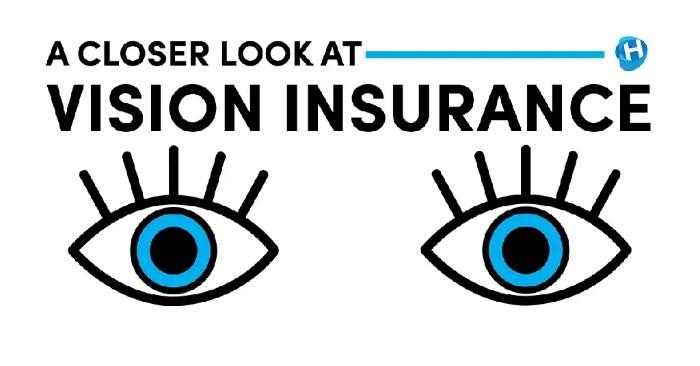Are you considering investing in vision insurance? Good for you! Vision insurance can have many advantages, both financially and health-wise. While it is not a requirement or even necessary to purchase, understanding what vision insurance covers can help determine if its benefits are worth the price.
In this blog post, we'll discuss why some purchase vision plans, how they work, and the pros and cons of adding them as part of your healthcare plan. So let's start determining whether vision insurance is worth it for you.
What is Vision Insurance and How Does it Work

Vision insurance is a type of health insurance plan that helps cover the cost of vision-related care, including eye exams, eyeglasses, and contact lenses.
It can cover various services, such as vision screening tests and corrective surgery. Vision plans typically have different levels of coverage, so it's important to understand what is included when you choose a plan.
The most important factor when understanding how vision insurance works is deductibles and co-pays. A deductible is the amount of money you must pay out of pocket before your vision insurance kicks in and pays an agreed percentage or dollar amount for services covered by the plan.
Commonly, coinsurance and copayment are also required for vision services. Coinsurance is the amount you must pay for a service after your deductible has been met, usually expressed as a percentage of the cost of the service.
Copayment is a set fee you must pay whenever you receive covered services.
With vision insurance, there may be a limit on how often you can be reimbursed for certain services. For example, a one-year waiting period may be before eyeglasses or contacts can be approved for coverage.
Some plans restrict where and from whom you can receive care. It is important to check these details when choosing a vision plan to know what coverage you will get.
Types of Coverage Available with Vision Insurance

There are many different types of coverage available with vision insurance. Depending on your chosen plan, your vision plan may cover the following.
Comprehensive eye exams, contact lens fittings, ophthalmic lenses, frames and replacement eyeglasses or contacts. Most vision plans generally cover comprehensive eye exams. They can help detect potential eye problems and provide a prescription for corrective lenses if necessary.
Contact lens fittings can also be covered, including the cost of contact lenses and other related materials, such as cleaning solutions.
Ophthalmic lenses are typically covered by vision plans and may include single-vision, bifocal or progressive lenses. Many plans also cover frames and replacement eyeglasses or contacts, which can help reduce eyewear costs.
Some plans may cover additional services such as laser vision correction and specialised treatments or procedures. Reviewing your policy for a complete list of benefits and coverage details before deciding to purchase vision insurance is important.
How Much Does Vision Insurance Cost
Vision insurance, like other health insurance plans, can vary in cost depending on the specific plan and provider. Generally speaking, vision insurance is more affordable than traditional medical insurance.
Typically, costs range from $10 to $25 per month for individuals and $20 to $100 or more for families. The cost may also depend on the level of coverage and any additional benefits included in the plan, such as wellness visits or discounts on glasses or contacts.
It’s important to factor in your deductible when evaluating whether a vision plan is worth it. While some providers offer low premiums with high deductibles, others may have a higher premium but lower co-pays and no deductible requirements. It's best to balance the cost of premiums with how much you'll likely save over time.
Pros and Cons of Having Vision Insurance
Vision plans can help cover some of the expenses associated with routine eye care and eyewear. This may include coverage for annual examinations, contact lenses, prescription eyeglasses, and even laser vision correction.
The cost of these services can add up quickly if you have a family or require frequent checkups due to an existing eye condition.
With vision insurance in place, you can enjoy discounts on all these purchases and several other services that might not be available without your plan.
Plus, since most plans have no waiting period or deductibles, you usually don't have to pay anything out-of-pocket before your insurance kicks in.
However, there are some downsides to purchasing a vision plan as well. Most plans come with an annual premium and may have limits on the services they cover or a maximum benefit amount per year.
Not all optometrists accept insurance from every provider, so you may need to find an in-network doctor to use your coverage properly. And if you have existing eye conditions or require more specialised care, such as surgery, vision insurance might not cover these expenses.
Whether vision insurance is worth depends on your unique needs and situation. For those who wear eyeglasses or contacts regularly and don't have additional medical issues related to their
How to Determine if Vision Insurance Is Right For You
When investing in a vision plan, the decision should be based on your needs and lifestyle. Before investing in any insurance coverage, it’s important to determine if the cost is worth the benefits that you can receive from the plan.
To get started, consider your current eye health and vision care requirements. Is there anything you need or have been putting off due to expense? Do you often wear contacts or glasses and will benefit from discounts on these products? Is there any recent family history of long-term eye diseases such as glaucoma or macular degeneration that could require frequent checkups? If so, then a vision plan may make sense for you.
Another factor to consider is the cost of your plan and how often you will use it. Is there an annual deductible or any additional fees? Is it a discounted fee-for-service plan or a managed care plan that requires you to choose providers within their network? Is there an out-of-pocket maximum that protects you from needing to pay more than a certain amount per year?
If, after considering these questions, you still feel uncertain about investing in vision insurance, then shopping around for plans could help. Compare different options about coverage and pricing before making a final decision.
Also, be aware of any limitations and exclusions as part of the policy. Some insurers may also offer discounts for purchasing multiple policies, such as health and vision insurance.
FAQs
Can You Get Vision Insurance and Then Cancel?
Yes, you can cancel your vision insurance at any time without penalty. However, if you do choose to cancel your plan, you will be able to use the benefits once you re-enrol again.
What is a vision claim?
A vision claim is when you request reimbursement from your vision insurance provider after incurring an eligible expense such as eye exams, eyeglasses or contacts.
The amount of coverage and the eligibility criteria may differ depending on the plan.
How much do glasses cost with insurance?
The cost of glasses with vision insurance can vary depending on the type of plan, deductible amount and co-insurance. Generally, you will pay a copayment for an eye exam, and then you may be eligible for discounts or coverage for frames, lenses and other upgrades.
Conclusion
So, is vision insurance worth it? You now have all the information you need to make an informed decision. From the types of coverage available, the associated costs and the potential benefits of having vision insurance to understanding your unique needs and circumstances, it's important to determine what option is right for you.




